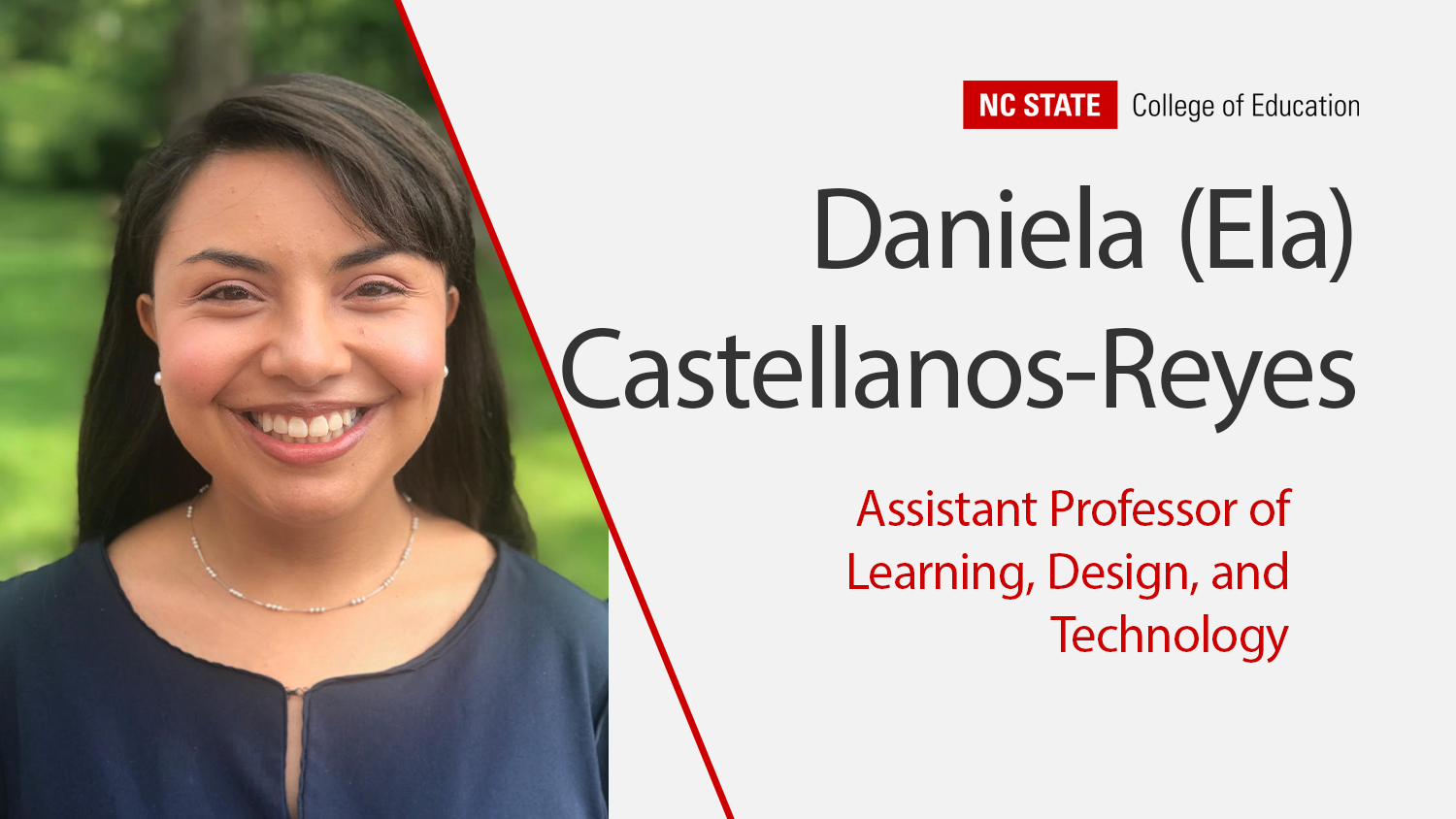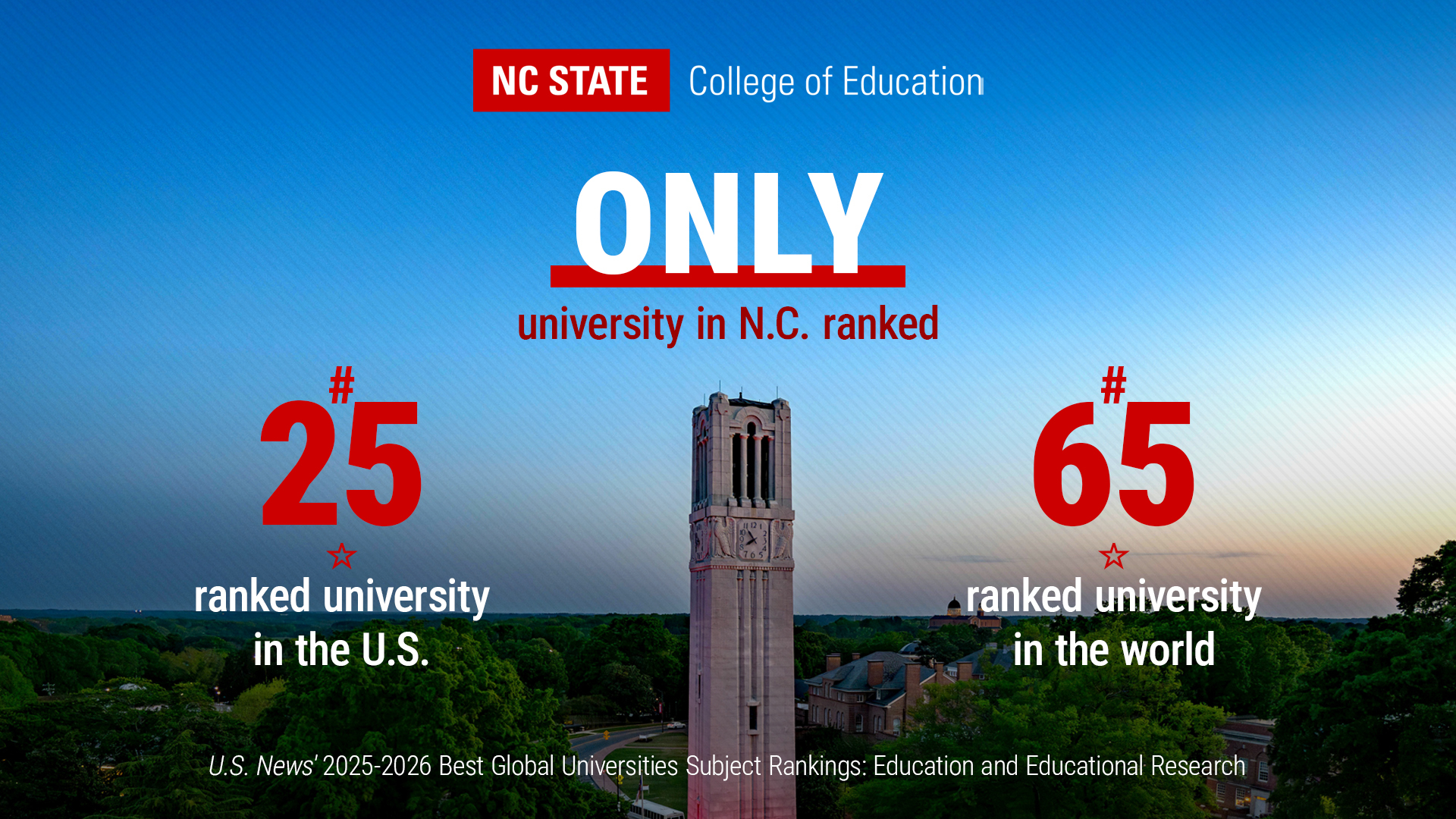Daniela (Ela) Castellanos-Reyes: ‘I Thrive to Design Learning Experiences that Account for Students’ Prior Knowledge and Their Cultural Ways’

Daniela (Ela) Castellanos Reyes will join the NC State College of Education in the 2023-24 academic year as an assistant professor of learning, design and technology and the newest Chancellor’s Faculty Excellence Program cluster hire and member of NC State’s Digital Transformation of Education cluster’s interdisciplinary team.
She previously served as a National Academy of Education/Spencer Dissertation Fellow.
Learn more about Castellanos-Reyes below:
Why did you choose a career in education?
I was raised in a family of educators, which made me grow up admiring their work and looking up to their values. Just like any other kid helps in the family business, it was common for me to help out brainstorming ideas for in-class activities, crafting decorations for classrooms and curating books for courses. So, when the time came to choose a career path, I decided on a teaching degree.
What inspired you to pursue a doctoral degree?
I had a once-in-a-lifetime opportunity during my undergraduate program doing research. First, as an exchange student at the University of Mannheim in Germany, I was first exposed to data collection and validation of surveys. I enrolled in doctoral level courses and thought that it was something that I could do to address society’s issues. Then, as part of the undergraduate research experience at Purdue University (UREP-C), I worked on my own research project that exposed me more to research, publishing and, eventually, academia. I saw that a doctoral degree was necessary for me to continue working on my own research agenda.
What are your research interests?
My research focuses on supporting nontraditional online students through access to affordable education. I have also worked on how to implement open educational resources, networked learning and mobile learning in developing regions like Latin America. As part of my work, I use computationally intensive methods like network analysis.
What sparked your interest in those topics?
My grandma played a big role in my upbringing and she obtained her teaching degree by correspondence — evolved to be online learning — because she was a single mother of two and had a disability. I saw the struggle of nontraditional learners to connect with others when learning at a distance and the urgency to support those who are looking to improve their living conditions via education.
What is one moment or project in your academic career that you are particularly
proud of?
I’m particularly proud of being awarded the National Academy of Education and Spencer Foundation Dissertation Fellowship for my work titled “The Spread of Social Presence: Network Analysis Modeling of Students’ Peer Influence in Online Learning.” I was the first graduate student to receive such recognition at Purdue University and that was a big deal to me. It opened many doors for me to share my research with others and connect with researchers whose work I greatly admire.
What is your teaching philosophy?
I am a student-driven instructor who encourages mastery and transfer of learning. I thrive to design learning experiences that account for students’ prior knowledge and their cultural ways of knowing. Then, I focus on identifying real-world applications of the target content while leveraging short lectures and modeling. I use experiential learning in my assessment, giving students freedom to choose the final paper topics that align to their career path.
What do you hope your students learn from you?
I work for my students to acquire a sense of agency over their professional lives that helps them fulfill their potential. I enjoy planning, therefore, I hope they learn with me how to clarify their short-, mid- and long-term professional goals. Content wise, I hope they learn how to design high-quality distance education experiences, apply networked and open learning in their work as educators and leverage data analytics in their everyday work.
What do you believe makes someone an extraordinary educator?
Simplicity and example. Making the complex simple is extraordinary. Teaching by example, that is essentially “practice what you preach,” is incredibly helpful and hard to achieve.
- Categories:


